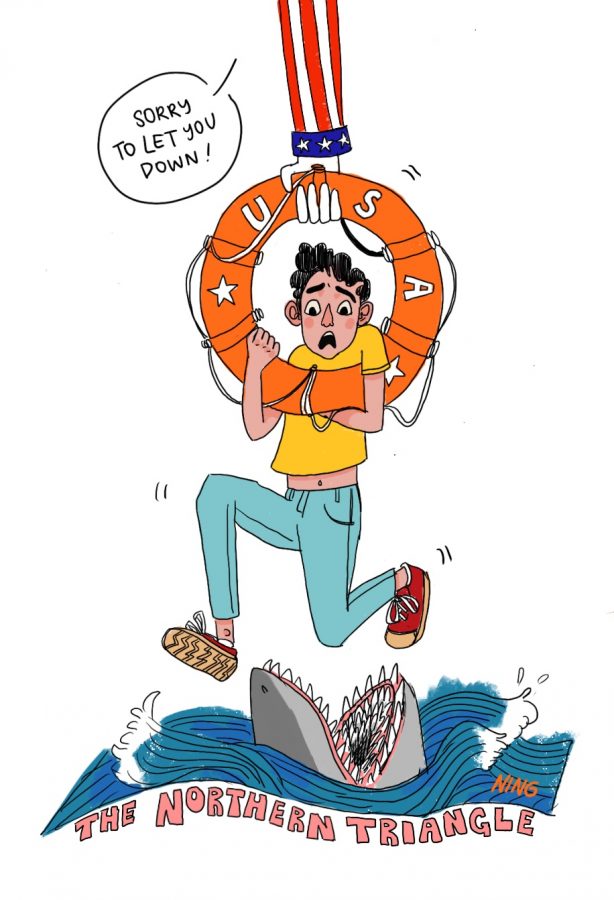Violence in the Northern Triangle Pushes Youth to Flee to the United States
November 19, 2018
In 2015, 39,970 unaccompanied minors were apprehended at the US-Mexico border. Many children crossed alone hoping to join family members already residing in the US; others left their families in pursuit of better lives.
In the Northern Triangle, which includes Guatemala, Honduras, and El Salvador, the drug-trafficking industry and violent street gangs dominate neighborhoods, intimidating families for money or attempting to recruit young members (sometimes by force). According to the Internal Displacement Monitoring Centre, El Salvador, Guatemala, and Honduras had nearly 567,000 internally displaced individuals fleeing drug and gang-related violence. Gender-based violence is also a prominent issue in the region; in 2015, there were 11,299 reported cases of sexual assault in Guatemala. The Northern Triangle also has an incredibly high rate of femicide (the intentional killing of females because of their gender) as well as violence against members of the LGBTQ+ community. There is also a high rate of impunity for criminals, with an estimated over 90 percent of crimes going unpunished. The public has little trust in police forces while violence continues to spread as government institutions remain underfunded and corruption further inhibits efforts to punish crime. Of the unaccompanied children apprehended, 9,383 were from Guatemala, 7,914 from El Salvador, and 4,224 from Honduras. In 2015, there was an average of 91 murders per week reported in Guatemala; Honduras had a homicide rate of 6 per 10,000 inhabitants. In addition to poverty, these conditions push young people to leave family and friends and embark on a journey through Mexico to the United States—but the decision is still far from easy.
“My mom had tried to bring me [to the US] three times. The first time she tried to bring me here, I got in the car and I suddenly did not want to leave home. I got out of the car and I threw this tantrum and I wouldn’t go. I didn’t wanna leave my grandmother and my younger brother. I felt like I was abandoning them.”
Some leave their home countries to be reunited with family or friends in the states, while many others leave loved ones behind. Between 2015 and 2016, the number of children apprehended at the U.S.–Mexico border rose from 15,616 to 27,754. These children, who flee violence in their home countries, also face violence and human rights abuses in Mexico as they try to reach the US. The journey is extremely long and difficult for many, and unaccompanied minors go through this process alone driven only by the hope of being reunited with family.
Unaccompanied minors are among the most vulnerable if and when they arrive in the United States. Minors often face discrimination and the language barrier whilst having to support themselves financially, attending school during the day, and working long night-shifts. Simple actions, such as filing a complaint or heading to the doctor’s office could land them in detention and immigration court. When facing deportation, unaccompanied minors are not granted free lawyers, impeding their right to due process. Minors are forced to defend themselves before a foreign judge in a foreign language, fighting against being sent back to a place where they have no future. Only about 15% of children who are not represented in immigration court are allowed to stay in the US, compared to the 73% percent of represented children who are given papers.
The vision of a better future appears further and further away for youth fleeing violence in their home countries. Their status in the US is increasingly jeopardized under the current administration. President Trump’s threats to repeal DACA, increase deportations, and build a wall, along with his nativist rhetoric make the US a more hostile environment for immigrants who are just seeking a better life.



